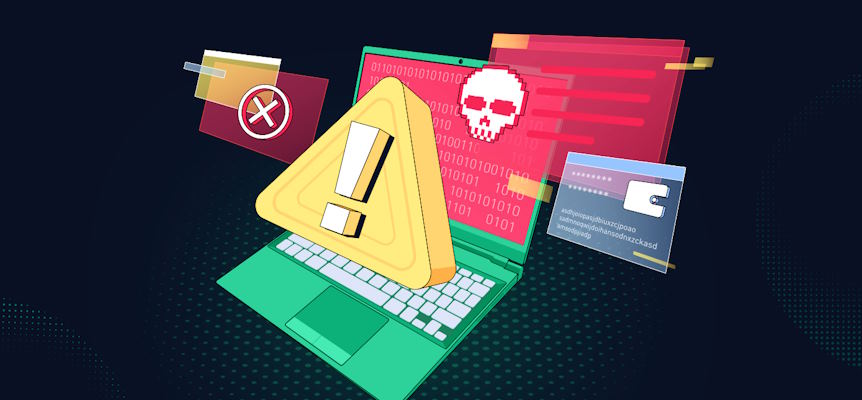In the fast-evolving world of cryptocurrency investments, one of the most ominous threats lurking in the digital shadows is ransomware attacks. As more individuals and businesses turn to cryptocurrencies as a means of investment, the appeal of these decentralized assets has caught the attention of cybercriminals seeking illicit gains. Ransomware attacks, which involve encrypting a victim’s data and demanding a ransom for its release, have become a pervasive menace to crypto enthusiasts.
Understanding Ransomware Attacks
Ransomware attacks have become a prevalent and concerning issue in the digital age. To effectively protect your cryptocurrency investments, it’s crucial to grasp the fundamentals of these malicious attacks.
What is ransomware?
Ransomware is a type of malicious software that encrypts a victim’s data, rendering it inaccessible. Perpetrators demand a ransom—often in cryptocurrency—for the decryption key, which would release the victim’s files. This insidious digital extortion technique has been a nightmare for individuals and organizations alike, and the use of cryptocurrencies for ransoms adds an additional layer of complexity.

How ransomware attacks work
Ransomware attacks typically begin with the victim unwittingly downloading malicious software onto their system, often through deceptive email attachments, fake software updates, or compromised websites. Once the malware infiltrates the system, it encrypts files, rendering them useless. The victim is then presented with a ransom demand, and paying the ransom does not guarantee the safe return of data, making it a perilous gamble.
High-profile ransomware incidents and their impact on crypto holders
Recent high-profile ransomware attacks, like the Colonial Pipeline and JBS meat processing incidents, have highlighted the devastating consequences for victims and the importance of robust cybersecurity. Crypto holders, who often possess significant wealth in digital assets, are prime targets for ransomware attacks, as cybercriminals seek to exploit their vulnerabilities. Understanding the inner workings of these attacks is the first step in protecting your cryptocurrency investments from this growing threat.
What to Do If You’re a Victim of a Ransomware Attack
Discovering that you’ve fallen victim to a ransomware attack can be an incredibly distressing experience, particularly when your cryptocurrency investments are at stake. However, knowing how to respond promptly and effectively can make a significant difference in minimizing the damage.
Steps to take immediately
Isolate Infected Systems: As soon as you detect the attack, disconnect the infected system from the network. This can help prevent the malware from spreading to other devices or files.
- Do Not Pay the Ransom: While it may be tempting to pay the ransom to retrieve your data or regain access to your cryptocurrency, there is no guarantee that the attackers will honor their end of the bargain. Paying the ransom also encourages further criminal activity.
- Document the Attack: Take screenshots, record any ransom notes, and gather as much information as possible about the attack, such as the Bitcoin wallet address used for the ransom. This information may be useful in the investigation.
Involving law enforcement and cybersecurity experts
- Contact Local Law Enforcement: Report the incident to your local law enforcement agency. Ransomware attacks are illegal, and law enforcement may be able to assist in the investigation.
- Engage Cybersecurity Experts: Seek assistance from cybersecurity professionals or firms with experience in ransomware incidents. They can help assess the extent of the attack, advise on data recovery, and assist with the investigation.
Reporting the incident to appropriate authorities
- Report to Cybercrime Authorities: Contact your country’s cybercrime authorities or agencies specializing in cybercrime. They can provide guidance, initiate investigations, and share information with international counterparts.
- Report to the Bitcoin Abuse Database: If a Bitcoin address was used for the ransom, report it to the Bitcoin Abuse Database. This database tracks addresses associated with ransomware attacks and can help prevent others from falling victim.

